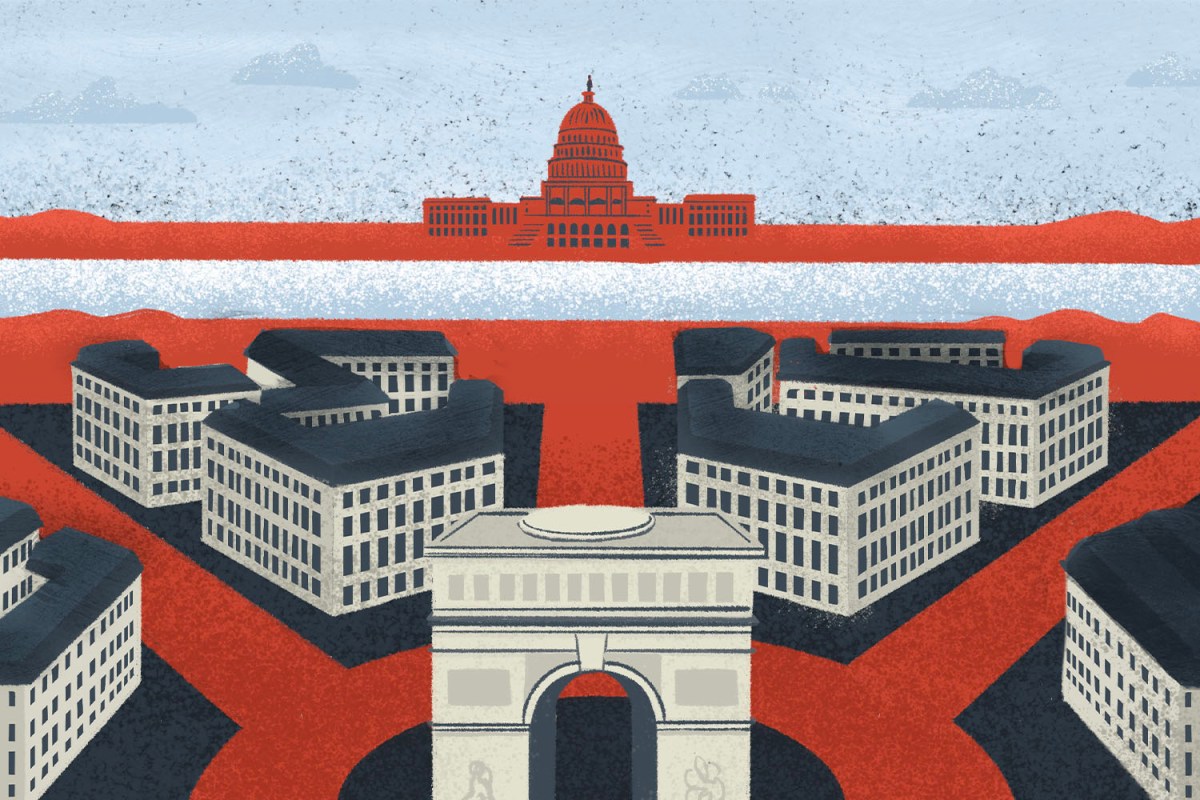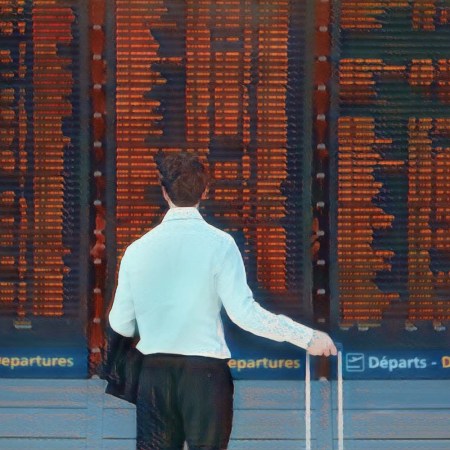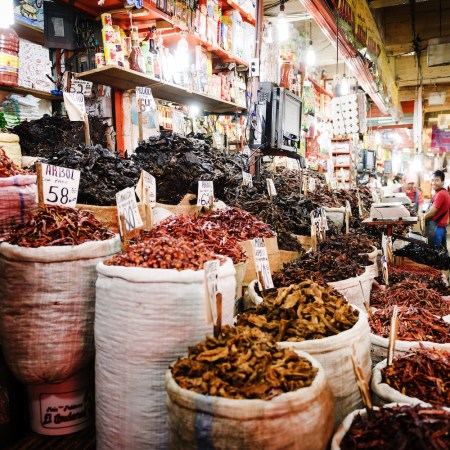On March 11, while I was asleep in Lyon, France, President Trump made an announcement from the Oval Office that travel from European countries has been banned. Exactly what that meant was open to interpretation. The UK was OK, but beyond that, the rest of the continent had nary a clue what, exactly, that meant.
Since I arrived in France a few weeks ago, I’ve been refreshing the news apps on my phone whenever and wherever I get wifi. I contact my family and friends daily to update them, and yet for weeks I have remained uncertain as to whether I should change my plans and return home to Manhattan. Every journal, every scientific article, every person I speak with seems to have a different opinion on how to move forward during this global event.
On the morning before Trump’s Oval Office announcement, the fear that had been building up reached a new height when Tedros Adhanom Ghebreyesus, the World Health Organization director-general, announced that the coronavirus is a pandemic. I received texts and calls about the situation in New York, where classes have been suspended indefinitely, going out and eating or drinking in crowds wasn’t the safest idea and employers started to urge their teams to stay home. One of my more creative friends sent me a playlist of songs apt for the end of the world. For a few hours, I felt relieved that I had decided to stay in France, but the announcement of the ban later has reinstated an atmosphere of urgency and fear in myself and many other Americans who are currently living, studying or traveling abroad.
We’ve been told the ban will take effect at midnight this Friday (March 13th, naturally) and continue for 30 days, as long as the spread has been controlled within that timeframe. The countries targeted by this change are those of the Schengen Area, which include the majority of EU countries. While the restrictions may have come as a relief to those in the country, the address prompted just as much uncertainty for those outside. The United States is known for strict border control. Even as a US citizen, getting off a plane in our country can be stressful, but with this ban in place, the thought of returning home is daunting and the lack of clarity has sent many of us into a panic.
A student from Connecticut living in the UK as an NYU grad student tells me, “As an American living in London, separated from my friends, family and loved ones, the coronavirus pandemic has forced me to reconsider why I moved here in the first place. I am currently working towards my Master’s degree in London, and my university has closed its campus, sent the undergraduates home, but have left us graduate students to fend for ourselves. There has been little information regarding our future, and while most of us have leases here and have uplifted our lives to come here, I feel a strong pull to return home to my family for the fear of living alone in my small London flat in isolation for weeks, or even months. The time to make decisions is dwindling, and therefore anxieties are rising. London is lucky that its COVID-19 cases are not to the level of Italy, or Washington state, but it still is worrying. I do not worry about myself becoming sick, but I worry about passing it along or having my family get sick across the ocean and being unable to be there.”
Melia Wagner, a localization manager at Spotify, has been in Stockholm on business for the past few weeks and had also been wavering — up until the announcement — on whether or not to return. She tells InsideHook, “Around a week ago, I started to seriously consider that I would need to make a choice within a few days about what to do: Should I stay, or should I go home early? I didn’t trust that the US was doing everything necessary in spite of all the information coming in globally about how quickly things spread, and the idea of traveling through massive international airports during a health crisis felt entirely less than appealing. On Tuesday afternoon (March 10), my company implemented a mandatory WFH policy that would be in place for 14 days. This helped solidify my gut-feeling that maybe I should stay put where I am. If we were all going to WFH for 14 days, it didn’t really matter where I was anyway.”
Despite the fear that the media has been instilling in visitors in Europe, it’s important to stay calm and think through our decisions. Wagner continues, “Last night’s news (which came very much “last night” for me … I didn’t know anything had happened until I woke up this morning to 37 text messages from my family and friends) sort of triple-confirmed that I had made the right choice. The notion of trying to scramble home with every other American who is abroad is extremely unappealing. How many of those people abroad were infected, and suddenly racing to make it back home, spreading the infection in their wake? … I’ll be staying put until new information comes to light that gives me an indication that it’s safe to go home.”
On the other hand, some people in Europe don’t have the means to stay for the duration of a monthlong travel restriction, so the announcement on Wednesday night influenced many American travelers to make a swift decision to fly home. Many airlines are even offering new cancellation policies and refundable tickets, making travel seem almost attractive at a time when people should be focusing on taking the necessary measures to reduce the risk of spreading the virus. Just hours after that ban was announced, countless Americans decided to book a plane home for the very same afternoon, resulting in hordes of people swamping international airports, and those same airlines that had previously offered deals now ratcheting flight prices up to as much as $20,000.
In certain countries, the question of what to do next is even more complicated. Within 24 hours of President Trump’s address about the institution of the ban, the president of France, Emmanuel Macron, delivered a speech concerning the pandemic. Restrictions will be put in place on Monday and nurseries and schools will be closing indefinitely, making it seem as though France will follow closely in the footsteps of Italy. Americans in France are doing whatever it takes to leave the country before a lockdown keeps us here and border control keeps us out of the US. We woke up to an announcement that we should not fly home, but by the evening we were told by Macron not to stay. Where does that leave us?
Alex Gemme, a university student in Poitiers, France, was informed directly after the President’s speech that he had to leave the country. He says, “The travel ban has thrown all the Americans I know in Europe into a massive panic and everybody is just trying to get back to the States as quickly as they can regardless of what it is going to cost them, morally, financially, socially. A lot of people are doing really impulsive things, spending thousands of euros on one-way plane tickets and even paying for a backup flight in case the first is canceled. The cheapest flights as of this morning were $300 and by lunchtime it was $700. Now that President Macron has spoken, they’re jumping into the thousands.”
For those who’ve expatriated to settle in Europe — Italy in particular — the pandemic is more than just a concern of what to do next or when to come home. Matthew Rosenthal, a teacher from Vermont who moved to Brescia, Italy, a few years ago, has been quarantined in his own home. He tells me, “Living in Italy has always been a joy. It is a beautiful country full of intelligent and passionate people. This outbreak here is currently testing this society greatly. It is strange looking out the window and hearing nothing, only silence. Seeing piazzas, normally full of life, empty. Not being woken every morning by the sound of the bells of the nearby church. In this pivotal moment we see many things in Italy. You have an incredible medical system that has been completely overburdened, you see a government that is trying very hard to contain this situation, but is constantly being thwarted by corruption and ignorance, and you see a passionate people who are confused and scared.”
Most public services in the quarantined zones have been shut down, and hospitals don’t have the resources to effectively treat all the patients. Rosenthal emphasizes the need for outside help: “I wanted to share with you a way to donate to our local hospitals in order for them to purchase more respirators and machines to help treat this. This virus is not one to be taken lightly. We are on the front lines and I can tell you that it is not nothing, it is not merely the flu, this is serious. Another way to help is simply to stay home, wash your hands constantly, and stay away from people! Do not panic, for panic will only make the situation worse. Protect yourselves and the rest of humanity. We are all in this together and we will get through this.”
This article was featured in the InsideHook newsletter. Sign up now.
























